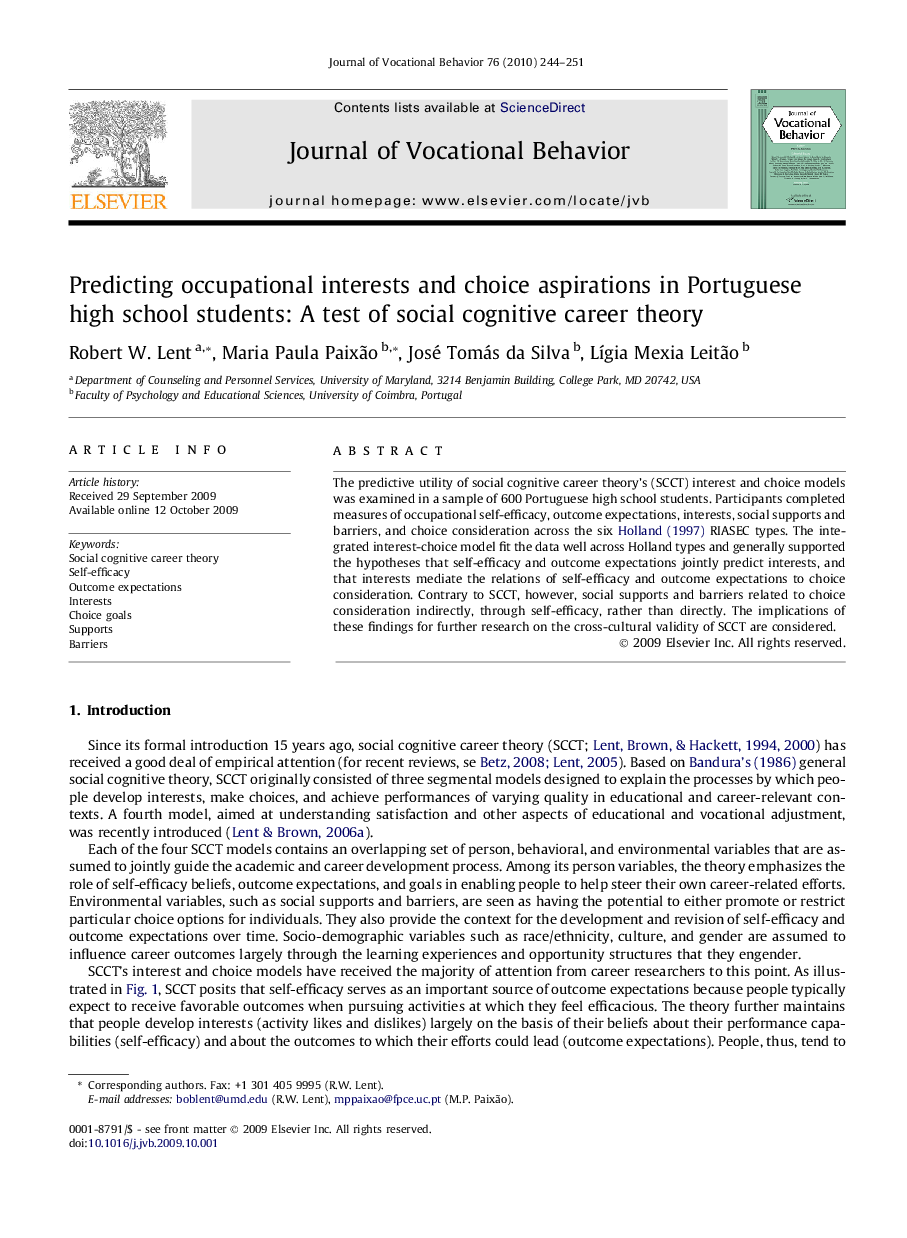| Article ID | Journal | Published Year | Pages | File Type |
|---|---|---|---|---|
| 887424 | Journal of Vocational Behavior | 2010 | 8 Pages |
The predictive utility of social cognitive career theory’s (SCCT) interest and choice models was examined in a sample of 600 Portuguese high school students. Participants completed measures of occupational self-efficacy, outcome expectations, interests, social supports and barriers, and choice consideration across the six Holland (1997) RIASEC types. The integrated interest-choice model fit the data well across Holland types and generally supported the hypotheses that self-efficacy and outcome expectations jointly predict interests, and that interests mediate the relations of self-efficacy and outcome expectations to choice consideration. Contrary to SCCT, however, social supports and barriers related to choice consideration indirectly, through self-efficacy, rather than directly. The implications of these findings for further research on the cross-cultural validity of SCCT are considered.
